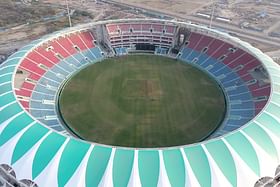Noida will become the fourth city in Uttar Pradesh, after Kanpur, Lucknow and Varanasi, to have an international stadium.
The Uttar Pradesh Cricket Association (UPCA) has approved the development of an international cricket stadium in Noida’s sector-150 situated along the Noida-Greater Noida Expressway.
This will be the first international cricket facility in Noida. As per the UPCA, this sports facility will allow the city to host international cricket matches, including Indian Premier League (IPL) events.
The approval for the development of this international facility was given on 17 March 2023, with an estimated construction timeline of three years, reports Hindustan Times.
The developers from Noida had submitted a proposal willing to develop an international cricket stadium in sector-150.
Subsequently, the committee has approved the proposal saying that the facility should be according to the norms of international cricket control board specifications.
A consortium of developers including Tata, Godrej, and Birla will develop the facility.
The lead developer of the sports city project, Lotus Greens Construction Private Limited, said the project would be ready to host international matches three years after the work begins at the site.
Ankit Chatterjee, CEO of UPCA stated, “Once developed, Noida can host all kinds of international cricket matches. Noida will become the fourth city in Uttar Pradesh, after Kanpur, Lucknow and Varanasi, to have an international stadium. We have just acquired land for a stadium in Varanasi. We may also build one in Ghaziabad if the land parcel is made available,” as per the HT report.
According to the association’s plan, the facility will have a seating capacity of 40,000.
The minimum playing area of the pitch will be 137.6 m from the boundary-to-boundary square. Additionally, the straight boundary of both ends of the pitch should be at least 64 m.
The proposed development will be part of the ‘integrated sports city project’, which is underway to offer multiple sports facilities under one region.
Additionally, with the construction of the stadium, the stakeholders expect further development and growth for the region.


